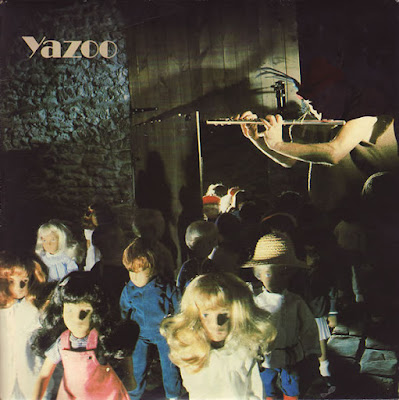"Shakespeare's Sister" returns to the top for one further week on w/e 20th April 1985
The "Aikea-Guinea" EP returns for a further 3 weeks on w/e 27th April 1985
Here we are again, with an absurd situation in the 1985 indie charts where The Smiths rebound for a single week and the Cocteau Twins grab the mantle back for three more. Who were the winners here? Not us, that's for sure, as it means we have no fresh meat to pop on the NME Indie Chart barbecue. Let's celebrate the other contenders lower down the charts instead.
Week One
Peak position: 11
"Cockney Translation" had originally been issued in 1984 and distributed by Polydor, but despite picking up huge appreciation among British reggae listeners, the label weren't impressed enough to release his next single "Police Officer", which was his only proper mainstream hit. They did, though, eventually have him back again for future releases in 1986, but couldn't be bothered to re-issue "Cockney Translation" themselves, hence its appearance here on the Fashion label in the indie listings. Confused? Oh, so the bloody hell am I.
In short, though, it's a great record. Smiley does his bit for urban relations by explaining Cockney slang and culture to his listeners, while simultaneously explaining British-Jamaican slang. It's witty and devious but also incredibly danceable, pounding away faster and with greater intent the more rapid-fire and intense Smiley gets. You can hear people doing almost identical things at spoken word events to this day; this was some sharply radical stuff by 1984 standards.
Peak position: 25
Peak position: 3
By 1985 the "classic rock and pop" medley had largely been consigned to the cultural dustbin, but that didn't stop record labels with compilations and reissues to flog from leaning on it as a promotional device. The Sweet have already disgraced the indie charts being massacred in this way, now it's Bolan's turn - and the outcome is no less graceless, frankly.
Leading on a hopelessly weak foot by making Bolan stutter at least six times too many on "Truck On (Tyke)" the rest of the best of his ouevre is also treated to the same basic DJ treatment. At its worst, this sounds more like the stylus getting stuck or skipping across a compilation LP than involving anything as complex as mash-ups or beat matching. Grim.
Peak position: 29
Sonic Youth had obviously been creeping around the underground scene for a few years by this point, but this was their debut single and has established itself as a cult classic since. Teaming the group up with the terminally adolescent rebel Lydia Lunch, "Death Valley" shows the sorry excuses for mid-eighties British punk bands how to really approach things - it's immediately arresting, and simultaneously simple yet unpredictable. This would have passed as a credible and current single in 1993, never mind 1985.
At one critical moment, it seems to get locked into its own primitive drone for an uncomfortably long time, before it unravels itself from the sticky web and launches itself skybound again like a huge dirty great fly. This remains a seriously impressive record.
Peak position: 30
The Truth were one of those strange early eighties major label signed acts who felt neither muckling nor mickling, with one foot in the mod revival, another in New Wave, then some occasional spare prop legs in areas such as classic rock and Motown, all while keeping one eye on the Sunday pop parade.
The approach gifted them two minor Top 40 hits, "Confusion (Hits Us Everytime)" and "Step In The Right Direction", the latter of which sounded like something Paul Weller might have rubber stamped for his fledgling Respond label. After that promising start, though, the launchpad was proven to be unstable, and no further hits were forthcoming. They found themselves booted off WEA and picked up by Miles Copeland's Illegal label for this single, which pushes the guitars up in the mix and makes them sound like angrier young men, but apart from that doesn't really do enough to restore their status.
They would later get some attention in the USA for their 1987 single "Weapons of Love" which managed an impressive Number 65 on the Billboard charts (no joke - that's great going for a band who were in danger of being totally forgotten) but their cultural legacy has been perhaps undeservedly muted (though the less said about their 1989 cover of "God Gave Rock and Roll To You" the better).
Week Two
17. Red Guitars - Be With Me (One Way)
Peak position: 4
The group's final release before naffing off to sign to Virgin, "Be With Me" is a strangely gentle farewell to the indie sector, all soulful crooning, atmospheric instrumentation, tasteful solos, and not a great deal of the adventure that was apparent in the band's previous singles. They were unquestionably at their best when fewer pairs of eyes were on them; "Be With Me" feels like a case of a group deciding they had to show their radio-friendly side for the sake of getting the rent paid. I'm willing to excuse musicians for that in my weary old age, having watched many of my friends dealing with the harsher economic realities of life, but that doesn't mean I don't still feel disappointed when it happens.
19. The X-Men – Spiral Girl (Creation)
Peak position: 18
The X-Men's final release for Creation before Alan McGee had a big purge of the label's roster and left them turfed out on to the cruel streets of Hackney. They never did release another new record. Oddly, this is also a rare example of an indie chart record which doesn't seem to have made its way on to the usual streaming channels either, and has no presence on YouTube. If anyone can help with that, I'd be grateful.
[update - thanks to reader Seannie for digging the below up]


